I want to solve ordinary differential equations using scipy_ivp() of a ball falling with an inital velocity of 1 in the x-direction, and 0 in the y-direction. The gravitational acceleration is g = 9.82, and when the ball hits the ground, its velocity is suppossed to change sign and be multiplied by 0.9. However, using the events parameter, I find it doesn't work as it should. This is my code and the result:
from scipy.integrate import solve_ivp
def f_derivs_ivp(t, vars, g = 9.82):
dxdt = vars[2]
dydt = vars[3]
dvxdt = 0
dvydt = -g
return dxdt, dydt, dvxdt, dvydt
def bounce(t, y, g = 9.82):
if y[1] <= 0:
y[3] = -0.9*y[3]
#print(y[1])
return y[1]
#bounce.terminal = True
#bounce.direction = -1
vars0 = np.array([0, 10, 1, 0])
sol = solve_ivp(f_derivs_ivp, [0, 7], vars0, max_step=0.01, events = bounce)
plt.plot(sol.y[0], sol.y[1], "ko")
print(sol.y_events)
print(sol.t_events)
Using another method than scipy.ivp(), the result should look like this:

What am I doing wrong, and how does the events parameter work? Note also that if I write return y[1] - 10 in the bounce function, nothing changes. It bounces up and down if I in the if statement of the bounce function write y[3] = 10 for example, but not as it should.

